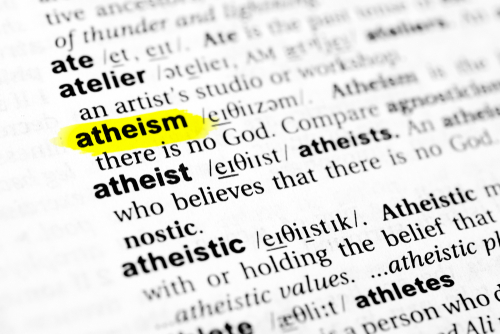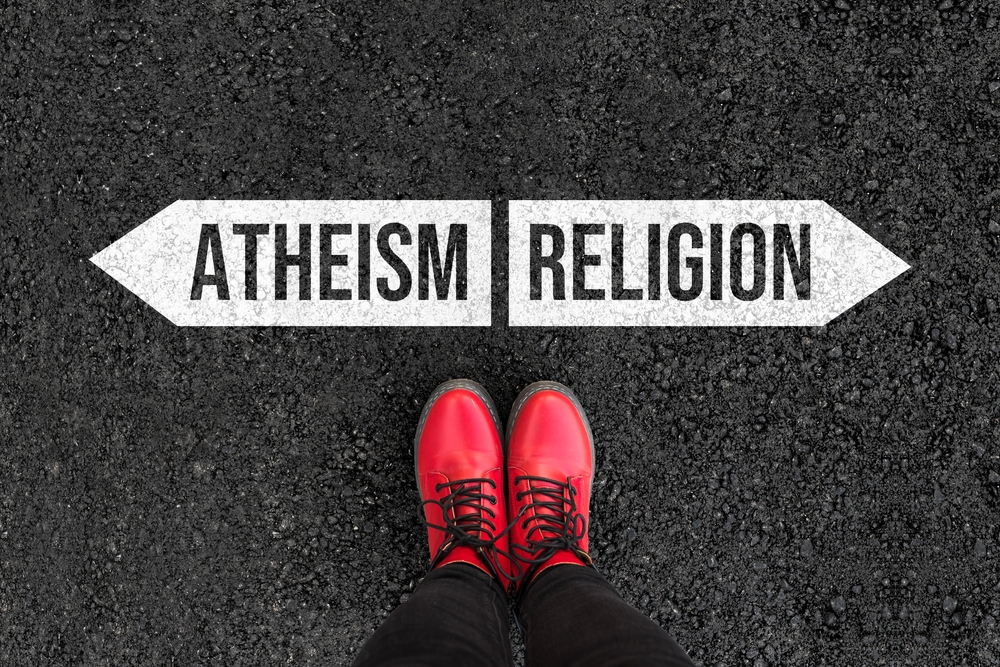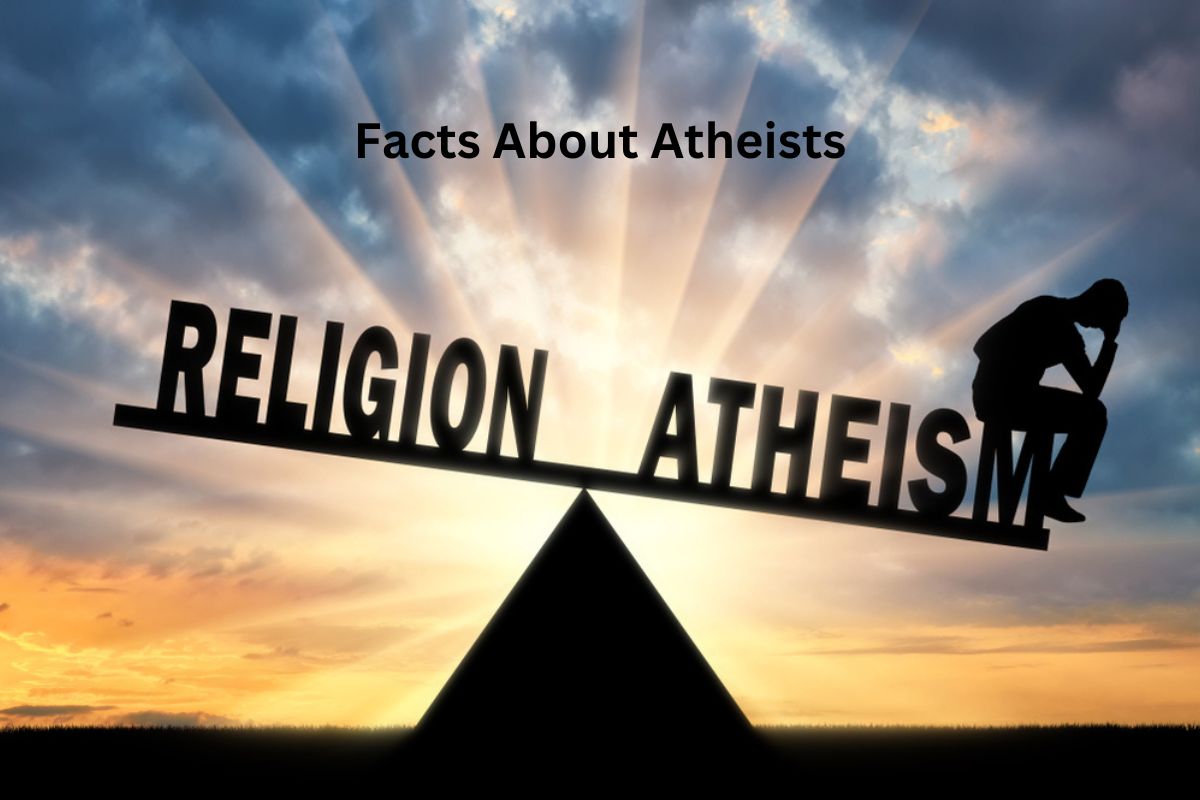Atheists are individuals who do not believe in the existence of gods or deities. Their worldview is characterized by a lack of belief in supernatural beings, setting them apart from theists who hold religious beliefs.
Atheism is a diverse perspective, and atheists may have varied reasons for their non-belief, ethical frameworks, and approaches to religion.
This introduction provides a starting point for understanding the beliefs and perspectives of atheists.
Atheists Facts
1. Atheists don’t believe in gods or deities
The core defining characteristic of atheism is the absence of belief in gods or supernatural beings.
Also Read: Facts About Lutherans
Atheists assert that there is insufficient evidence to support the existence of gods and, therefore, choose not to accept or believe in them. This stands in contrast to theism, where individuals hold a belief in one or more gods.

2. They may not necessarily be against religion
Atheism itself is a position on the existence of gods and doesn’t inherently entail opposition to religion.
While some atheists may be critical of religious beliefs, practices, or institutions, others may take a more neutral stance and simply live their lives without religious involvement.
It’s essential to distinguish between atheism as a lack of belief in gods and anti-religious sentiment, which is a separate perspective held by some atheists.
3. Atheists have diverse worldviews and reasons for their beliefs
Atheists come from a wide range of backgrounds and hold diverse worldviews. They may arrive at atheism through various means, including scientific skepticism, philosophical reasoning, personal experiences, or exposure to secular and humanist philosophies.
Also Read: The Bible in Chronological Order
Some atheists may be highly knowledgeable about religious texts and doctrines, while others may have little interest in or knowledge of religious matters.
Consequently, the reasons why someone identifies as an atheist can vary significantly from person to person. This diversity within the atheist community underscores that atheism itself is a single stance on a specific question (the existence of gods) and not a comprehensive worldview.
4. Many base their morality on secular principles
Atheists often derive their moral and ethical values from secular sources rather than religious texts or divine commandments.
Secular humanism is one such framework that many atheists embrace. It emphasizes the inherent worth and dignity of all individuals and promotes ethical principles based on reason, empathy, and human well-being.
Atheists commonly argue that morality can be developed through rational thinking, social cooperation, and an understanding of the consequences of one’s actions, rather than relying on religious doctrines.

5. Some identify with labels like secular humanist or agnostic
While atheism is a straightforward label denoting the lack of belief in gods, some atheists choose to adopt additional labels to clarify their stance on religion and spirituality.
For example, secular humanists emphasize human values and ethics, often working to promote human welfare and social justice.
Agnostics, on the other hand, might express uncertainty about the existence of gods and withhold judgment on the matter. These labels provide more nuanced descriptions of one’s beliefs beyond the broad term “atheist.”
6. Atheists can be found worldwide
Atheists are a global community, and they can be found in virtually every country and culture around the world. However, the prevalence of atheism varies significantly from one region to another.
Some countries, particularly in Western Europe and parts of Asia, have higher percentages of atheists and non-religious individuals. In contrast, other regions, such as the Middle East and parts of Africa, tend to have predominantly religious populations.
The reasons for these variations are complex and include factors like culture, education, and social norms. It’s essential to recognize that atheism is not limited to any specific geographic area.
7. Historically, notable atheists include famous thinkers
Throughout history, there have been many influential individuals who identified as atheists or held atheistic views.
These figures have made significant contributions to various fields, including philosophy, science, literature, and politics. Some notable atheists and agnostics include:
- Richard Dawkins: A renowned evolutionary biologist and author of “The God Delusion.”
- Christopher Hitchens: A journalist, author, and prominent advocate of secularism.
- Carl Sagan: An astrophysicist, cosmologist, and science communicator known for his work in popularizing science.
These individuals and many others have played pivotal roles in advancing secular and rationalist ideas.
8. Atheism doesn’t come with specific rituals
Unlike organized religions, atheism, by itself, does not come with prescribed rituals, ceremonies, or religious practices.
However, atheists may choose to engage in secular or humanist ceremonies for significant life events such as weddings, funerals, and baby-naming ceremonies.
These ceremonies typically focus on celebrating life, love, and human connections without invoking religious symbolism or deities.
9. Many advocate for the separation of church and state
Atheists often advocate for secularism, which is the principle of separating government and religious institutions. They argue that public policies and laws should not be influenced by religious beliefs or dogma.
Advocates for secularism work to ensure that the government remains neutral with regard to religion, protecting both religious freedom and the rights of non-religious individuals.
10. They often face misconceptions and stereotypes
Atheists frequently encounter misconceptions and stereotypes from society at large. Some common misconceptions include the idea that atheists are inherently amoral or nihilistic, which is not true. Atheists often base their moral and ethical values on secular principles like humanism and empathy.
Additionally, atheists are sometimes stigmatized or marginalized in communities where religiosity is predominant. Overcoming these misconceptions and promoting understanding and tolerance is a common goal for many atheists and secular organizations.
